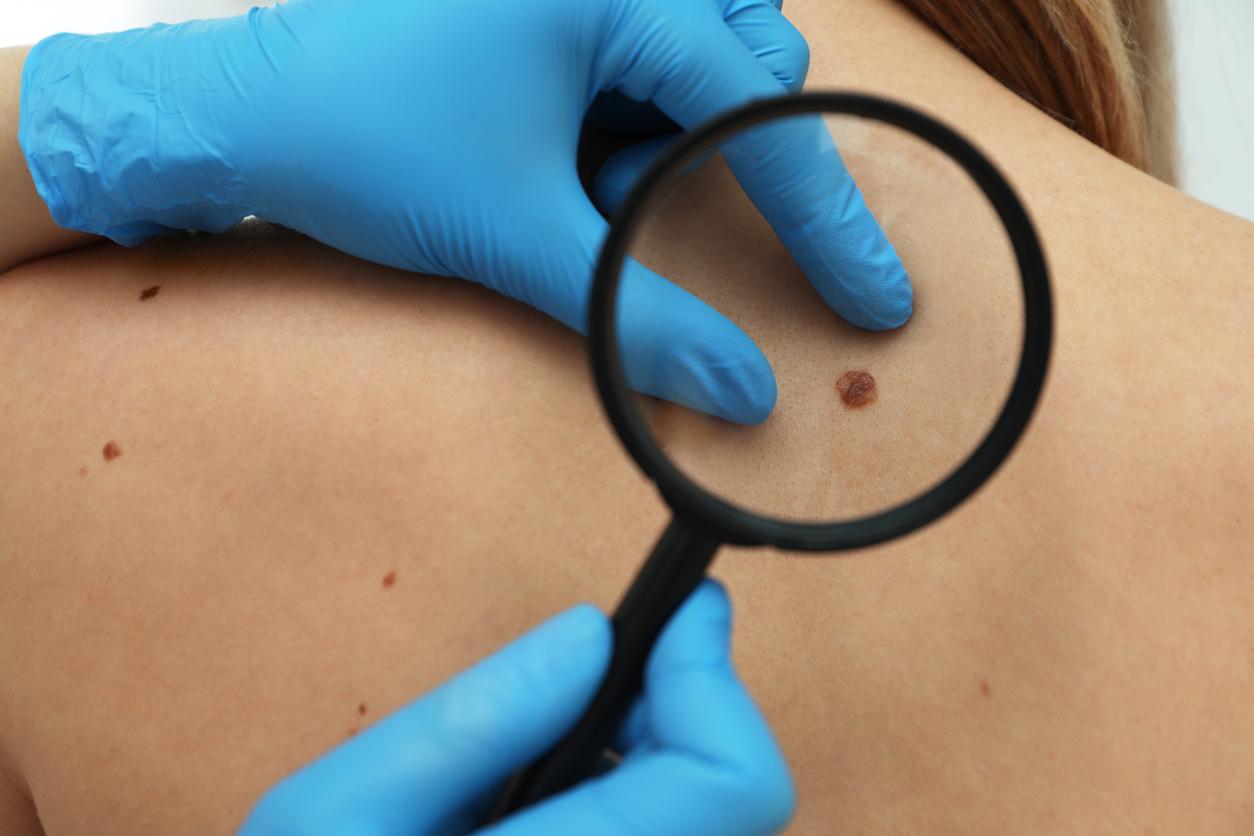In melanomas at high risk of metastasis, a combination of immunotherapies administered before surgery is clearly more effective. Treatment protocols will no doubt change.

In the advanced stages of melanoma, tumor excision surgery remains an interesting option. On the other hand, it is often complicated due to the extension of the tumour. Chemotherapy reduces the tumor volume to facilitate surgery: this is called neoadjuvant chemotherapy. In advanced-stage melanoma, because of the high risk of metastasis and the high efficacy of immunotherapies, it was interesting to try neoadjuvant immunotherapy.
The administration of a combination of 2 immunotherapies (anti-PD1 and anti-CTLA-4) before surgery gives a high response rate in patients with high-risk stage 3 melanoma (3b, 3c): nearly half of the patients no longer had any signs of cancer at the time of surgery, but a high incidence of side effects led to the early termination of the trial. These results are published in the journal NatureMedicine.
An innovative pilot study
The phase II study was conducted by researchers at the MD Anderson Cancer Center in Texas. Patients received either nivolumab, a PD-1 inhibitor that unmasks cancer cells from the immune system, or a combination of nivolumab with ipilimumab, a CTLA-4 inhibitor that stimulates immune cells T.
Each drug targeting a distinct immune modulating system on T cells, they have an additive or even synergistic effect on the immune system to stimulate the T cell response to cancer cells. All patients then received nivolumab after surgery.
Surprising results despite small study size
In the group that received the combination, 8 out of 11 patients (73%) saw their tumor shrink significantly and 5 (45%) no longer had any signs of melanoma at the time of the operation (pathological complete response) . On the other hand, 73% of the patients suffered from grade 3 adverse effects, leading to a delay in administering the dose in 64% of them and a delay in surgery for some (no grade 4 side effect ).
In the group that received only nivolumab alone, 3 of 12 tumors (25%) had a decrease in tumor volume or a pathological complete response. On the other hand, only 8% of patients had grade 3 adverse effects. The problem is that 2 patients progressed to a metastatic stage (stage 4) of the disease before being able to undergo surgery.
All those who obtained a pathological complete response in one or the other group remained free of recurrence of the disease at the end of the study. Overall survival is 100% at 24 months in the combination group and 75% in the nivolumab alone group.
Identify response and resistance biomarkers
In this study, the researchers analyzed biopsies and blood samples taken at several times during the trial. They thus confirmed the known biomarkers of the response to treatment and observed new biomarkers of the therapeutic response. Biopsies early in treatment would also identify which patients will respond to immunotherapy. The initial infiltration of tumor tissue by lymphoid cells and the magnitude of mutations in cancer cells (the total mutational load) are associated with the response to neoadjuvant immunotherapy.
Because of the results of this study, researchers at MD Anderson Cancer Center redesigned their study to evaluate another combination (nivolumab plus relatlimab, an immune checkpoint LAG3 inhibitor), a combination they believe could be more effective with a better side effect profile. On the other hand, they are now including their approach in an international consortium in order to accelerate research on high-grade melanoma.

.

















